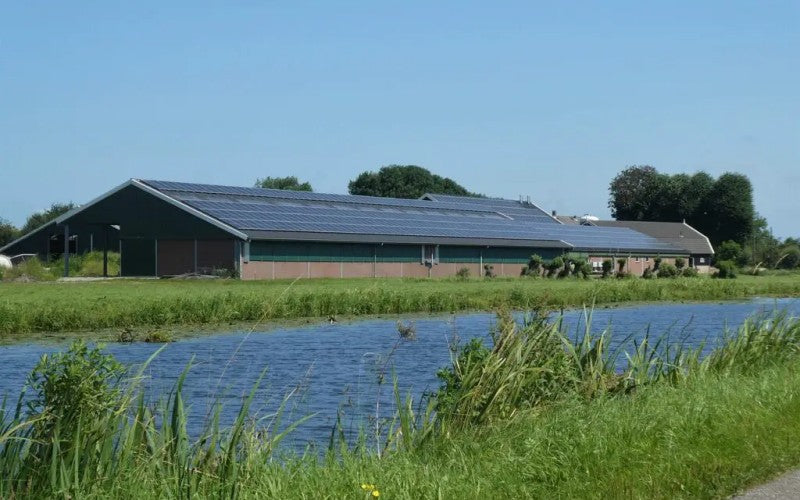
As the world turns its focus towards renewable energy sources, solar power has emerged as one of the most promising and accessible options. When considering a solar energy system for your home or business, it's essential to understand the various terms and acronyms associated with the industry. One such crucial term is EPC, short for Engineering, Procurement, and Construction. In this blog post, we will demystify EPC in the context of solar energy and explain its significance in ensuring the success of your solar investment.
What is EPC in Solar? Unraveling the Components
E - Engineering
The "E" in EPC stands for Engineering. This phase is the backbone of any solar project, where engineers assess the location, available solar resource, and customer requirements. During the engineering phase, professionals conduct a comprehensive site analysis to determine the solar potential and the optimal placement of solar panels.
The engineers also calculate the system size needed to meet your energy demands, ensuring maximum efficiency and cost-effectiveness. This phase involves creating detailed plans, including electrical diagrams, structural engineering assessments, and grid connection strategies.
P - Procurement
The "P" in EPC stands for Procurement. Once the engineering phase is complete, the next step is to procure the necessary materials and components for the solar energy system. This includes solar panels, inverters, mounting structures, cables, and other electrical components.
Choosing the right solar equipment is vital to the overall performance and longevity of your solar system. Reputable EPC companies work with trusted manufacturers to ensure the quality and reliability of the materials used in the project.
C - Construction
The "C" in EPC stands for Construction. During this phase, the solar energy system comes to life. Skilled technicians and construction workers install the solar panels, mount the supporting structures, and integrate all the electrical components. The construction process requires precision and attention to detail to ensure the system operates efficiently and safely.
The Significance of EPC in Solar Energy Projects
1. Seamless Project Management
By opting for an EPC approach for your solar energy project, you benefit from a seamless project management process. EPC companies handle all aspects of the project, from initial assessments to final commissioning, relieving you of the burden of coordinating multiple parties.
2. Quality Assurance
With an EPC contractor, you gain access to expert engineers and technicians who have experience in designing and implementing solar projects. This expertise ensures that the system is built to the highest quality standards, reducing the risk of malfunctions and ensuring optimal performance for years to come.
3. Cost Efficiency
Investing in solar energy is a significant decision, and an EPC approach can help you achieve cost efficiency. EPC companies have established relationships with suppliers, enabling them to procure solar equipment at competitive prices. Additionally, their expertise in designing efficient systems helps maximize the return on your investment by reducing energy costs over time.
4. Timely Completion
Solar energy projects involve several stages, and delays in any of them can lead to increased costs and prolonged downtime. EPC companies are experienced in executing projects within agreed timelines, ensuring that your solar system is up and running when you expect it to be.
Choosing the Right EPC Contractor for Your Solar Project
When it comes to selecting the right EPC contractor for your solar project, several factors should be considered:
1. Experience and Track Record: Look for EPC companies with a proven track record of successfully completed solar projects. Experience indicates reliability and expertise in handling various solar installations.
2. Reputation: Check customer reviews and testimonials to gauge the reputation of the EPC contractor. Positive feedback from previous clients is a good sign of their service quality.
3. Quality of Equipment: Inquire about the solar equipment they use. High-quality components lead to better performance and longevity of your solar energy system.
4. Warranty and After-Sales Support: Ensure that the EPC company offers a comprehensive warranty on their work and provides reliable after-sales support for maintenance and troubleshooting.
Conclusion
As you venture into the world of solar energy, understanding the significance of EPC in solar projects is essential for making informed decisions. Engineering, Procurement, and Construction form the backbone of any successful solar venture, ensuring that your investment is optimized for efficiency, performance, and long-term savings.
By choosing the right EPC contractor with a proven track record, you can confidently embark on your solar journey, knowing that you're taking a significant step towards a sustainable and greener future. So, go ahead, invest in solar energy, and enjoy the benefits of clean and renewable power for years to come.

0 comments